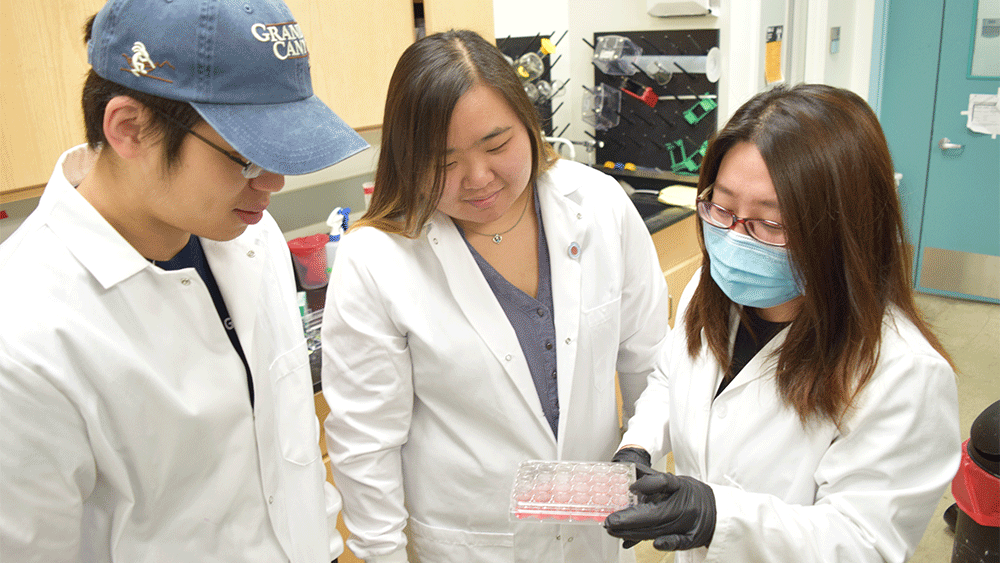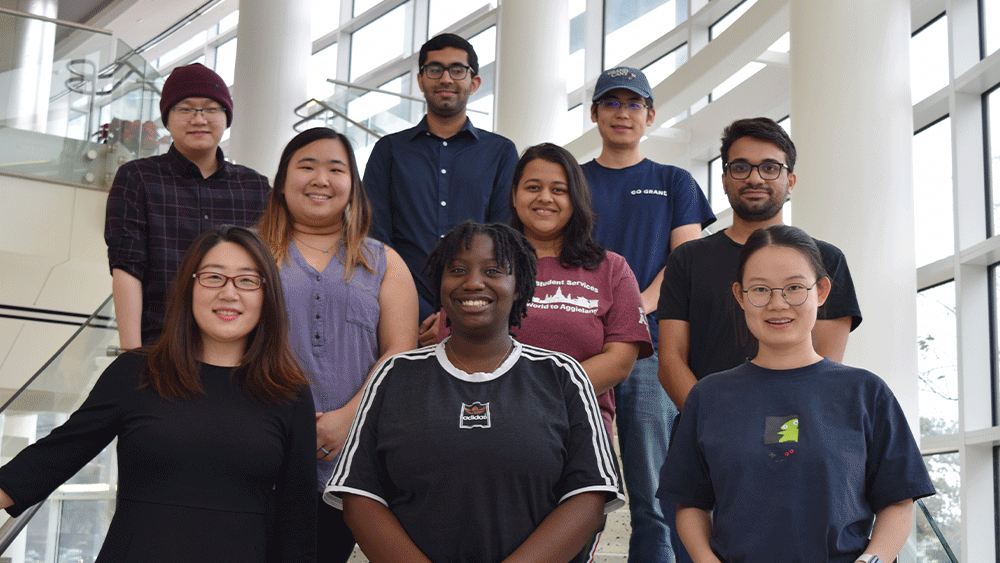
Messenger ribonucleic acid (mRNA) vaccines have become more popular as they can help prevent viral infections ranging from Zika to COVID-19, but their thermal stability remains a drawback. To store and transport mRNA vaccines requires ultracold freezers and cold-chain assurance, making it costly and challenging to provide vaccines to rural and developing communities.
The National Institutes of Health (NIH) awarded Dr. Qing Sun, assistant professor in the Artie McFerrin Department of Chemical Engineering at Texas A&M University, $1.8 million through the Stephen I. Katz Early Stage Investigator Research Project Grant. Using deep learning, Sun aims to develop mRNA vaccines that are thermally stable and relax the stringent conditions needed for mRNA vaccine preparation, storage and distribution.
“It is important in the future to improve the thermal stability of mRNA vaccines so that if there are other infectious diseases, we can respond quickly and distribute vaccines more efficiently,” said Sun. “Using this grant, we will focus on using artificial intelligence to develop a system for thermally stable mRNA vaccine development.”
Messenger RNA vaccines function by triggering an immune response within the body, protecting us from infection when exposed to pathogens. With the onset of the pandemic, the importance of vaccinations has grown. Being able to transport vaccines at cheaper cost without the need for extremely cold temperatures is critical for fighting against COVID-19 and other infections such as rabies and influenza.
To help with this issue, Sun proposed using a deep-learning platform that has shown success in natural language processing to nucleic acid feature prediction tasks. This interpretable, end-to-end model can predict mRNA vaccine secondary structures directly from sequence information. The model has been shown to reduce mRNA degradation in solution and mammalian cells after transfection.
“The Central Dogma of Molecular Biology states that DNA makes RNA makes proteins,” said Sun. “By changing the codons in the mRNA structure, we can make the same proteins to trigger immunogenic effects, but with a much more stable mRNA secondary structure.”
With the ability to screen over thousands of mRNA vaccine sequences through the deep-learning platform, she can predict mRNA sequences that are more stable when exposed to higher temperatures. She plans to validate the model performance by producing the predicted top-performance mRNA vaccine sequences and testing their stability and efficacy in her lab.
In the future, Sun hopes her production process can serve as a framework for other mRNA vaccine processing for rapid response to pandemics outside of COVID-19.
“By improving the thermal stability of the COVID-19 mRNA vaccines, we could redesign all other mRNA vaccines for the better,” she said. “I hope to see our deep-learning method applied to predict RNA secondary structure, stabilities and to study biological functions of RNA molecules including noncoding RNA, riboswitch and therapeutic RNAs. The method can potentially play critical roles in cellular and viral machinery to inspire novel antibacterial, antitumor and antiviral functions.”

Sun is the principal investigator on the project. She will conduct the research in her lab on the Texas A&M campus, with support from a team of graduate students, postdoctoral researchers and lab technicians. The Stephen I. Katz Early Stage Investigator Research Project Grant is an R01 grant which funds creative early-stage investigators’ research ventures in which no preliminary data is needed.